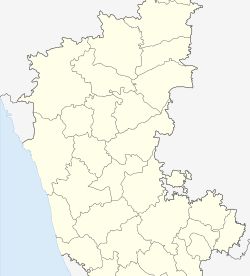In the district, horticulture crops occupy a relatively high proportion of gross cropped area, raising the economic viability of solar pumps here. For average crop revenue per holding, the district appears among the top 25 percentile of districts, implying higher investment capacity of the farmers here. The number of medium and long-term institutional loans disbursed in the district is comparatively large, suggesting the availability of credit amongst farmers for potential investments. The district appears in the group of districts, which show (very) low vulnerability towards climate change, as per an index constructed by CRIDA.
Deployment Approaches
| Approaches | Feasibility |
|---|---|
| Individually owned off-grid solar pumps | Limited Suitability |
| Solarisation of feeders | Suitable |
| Solar based water as a service | Not Suitable |
| Promote 1 HP and sub-HP pumps | Limited Suitability |
| Solarisation of individual grid-connected pumps | Limited suitability |
Individually owned off-grid solar pumps
Limited Suitability
The district has a relatively high disbursement of institutional credit and high crop revenue per holding. However, ground water availability is below the safe limit, and concentration of diesel pump users is comparatively low, making it very difficult to promote the private ownership of solar pumps here.
| Parameter | Value | Percentile |
|---|---|---|
| Number of cultivators reporting use of diesel pumps | 4,529 | 31 |
| Water Availability Index | 0.38 | 29 |
| Crop revenue per holding (INR) | 677,164 | 98 |
| Medium and long term institutional credit disbursed in a year (in INR Crore) | 235.2 | 85 |
Solarisation of feeders
Suitable
Given the relatively high cost of power supply for the respective DISCOM, a comparatively high extent of feeder segregation, and a high penetration of electric pumps, solarisation of the feeders would be a recommended way to promote solar-powered irrigation in the district. It would ensure the rapid and cost effective solarisation of irrigation power at a large scale.
| Parameter | Value | Percentile |
|---|---|---|
| Actual cost of power supply (INR/kWh) | 6.64 | 83 |
| Extent of feeder segregation | 94% | 61 |
| Proportion of cultivators reporting use of electric pumps | 12% | 58 |
Solar based water as a service
Not Suitable
The district has a relatively high proportion of unirrigated area. But, the concentration of small and marginal farmers is rather low and groundwater availability is below the safe limit, making it very difficult to promote solar-based irrigation through the water-as-a-service model here.
| Parameter | Value | Percentile |
|---|---|---|
| Water Availability Index | 0.38 | 29 |
| Proportion of small and marginal cultivators | 78% | 36 |
| Unirrigated net sown area as a share of total net sown area | 60% | 50 |
Promote 1 HP and sub-HP pumps
Limited Suitability
The district has a comparatively high disbursement of institutional credit to marginal farmers and a relatively high proportion of horticulture crops under gross cropped area. But groundwater availability below safe limit and a rather low concentration of marginal farmers limits the demand for 1 HP and sub-HP pumps in the district.
| Parameter | Value | Percentile |
|---|---|---|
| Area under horticulture crops as a share of gross cropped area | 19% | 78 |
| Water Availability Index | 0.38 | 29 |
| Proportion of marginal cultivators | 48% | 30 |
| Medium and long term institutional credit disbursed in a year (in INR Crore) | 235.2 | 85 |
Solarisation of individual grid-connected pumps
Limited suitability
The district has a relatively high rate of power subsidy for agriculture consumers, a comparatively high extent of feeder segregation, and a high penetration of electric pumps. However, the groundwater availability is below the safe limits. State should be cautious in promoting solarisation of individual grid-connected pumps as it may aggrevate the groundwater depletion
| Parameter | Value | Percentile |
|---|---|---|
| Water Availability Index | 0.38 | 29 |
| Actual cost of power supply (INR/kWh) | 6.64 | 83 |
| Extent of feeder segregation | 94% | 61 |
Leveraging Solar Pumps to Promote Policy Objectives
If you are deploying solar pumps in this district then you can further these policy objectives.
Har Khet ko Pani
A relatively high proportion of the net sown area in the district is unirrigated, indicating high irrigation demand. Solar pumps can help improve access to underground irrigation as part of Har Khet ko Pani.
| Parameter | Value | Percentile |
|---|---|---|
| Unirrigated net sown area as a share of total net sown area | 60% | 50 |
Doubling Farmers’ Income – Crop Intensity
A relatively high proportion of the district’s net sown area is unirrigated. Lack of access to irrigation is one of the major barriers to growing crops beyond two conventional seasons, rabi and kharif. Ensuring irrigation access through solar power will help improve cropping intensity and move towards the aim of doubling farmers’ income by 2022.
| Parameter | Value | Percentile |
|---|---|---|
| Unirrigated net sown area as a share of total net sown area | 60% | 50 |
Per Drop More Crop
In the district, crops suitable for drip and sprinkler irrigation occupy a relatively high proportion of gross cropped area, making it easy to adopt such high precision irrigation methods. Solar pumps, along with other efficient and precise water application devices, could be deployed under Per Drop More Crop to promote efficient irrigation.
| Parameter | Value | Percentile |
|---|---|---|
| Area under crops suitable for drip and sprinkler irrigation as a share of total cropped area | 26% | 55 |


